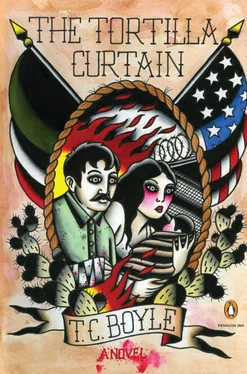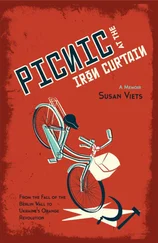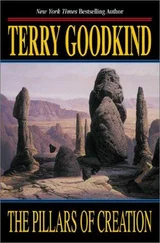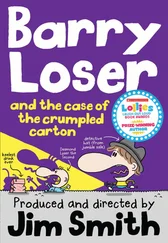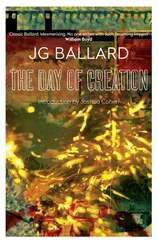T. Boyle - The Tortilla Curtain
Здесь есть возможность читать онлайн «T. Boyle - The Tortilla Curtain» весь текст электронной книги совершенно бесплатно (целиком полную версию без сокращений). В некоторых случаях можно слушать аудио, скачать через торрент в формате fb2 и присутствует краткое содержание. Год выпуска: 2011, Издательство: Penguin Books, Жанр: Современная проза, на английском языке. Описание произведения, (предисловие) а так же отзывы посетителей доступны на портале библиотеки ЛибКат.
- Название:The Tortilla Curtain
- Автор:
- Издательство:Penguin Books
- Жанр:
- Год:2011
- ISBN:нет данных
- Рейтинг книги:4 / 5. Голосов: 1
-
Избранное:Добавить в избранное
- Отзывы:
-
Ваша оценка:
- 80
- 1
- 2
- 3
- 4
- 5
The Tortilla Curtain: краткое содержание, описание и аннотация
Предлагаем к чтению аннотацию, описание, краткое содержание или предисловие (зависит от того, что написал сам автор книги «The Tortilla Curtain»). Если вы не нашли необходимую информацию о книге — напишите в комментариях, мы постараемся отыскать её.
The Tortilla Curtain — читать онлайн бесплатно полную книгу (весь текст) целиком
Ниже представлен текст книги, разбитый по страницам. Система сохранения места последней прочитанной страницы, позволяет с удобством читать онлайн бесплатно книгу «The Tortilla Curtain», без необходимости каждый раз заново искать на чём Вы остановились. Поставьте закладку, и сможете в любой момент перейти на страницу, на которой закончили чтение.
Интервал:
Закладка:
The night was black, utterly, impenetrably black, but Delaney didn't want to use his flashlight-there was too much risk of giving himself away. As soon as he dropped down on the far side of the wall, the faint light of the development's porch lights and Christmas displays was snuffed out and the night and the rain were all. The smell was raw and rich at the same time, an amalgam of smells, a whole mountainside risen from the dead. The boulders echoed in the steel-lined culverts, groaning like thunder, and everywhere the sound of running water. Every least crack in the soil was a fissure and every fissure a channel and every channel a stream. Delaney felt it washing round his ankles. His eyes, ever so gradually, began to adjust to the light.
He started straight up, along the backbone of the slope the coyote had ascended with Sacheverell in its jaws, and there was nothing under his feet. Where the white dust and the red grains of the anthills had lain thick on the dehydrated earth, there was now an invisible, infinitely elastic net of mud. Delaney's feet slipped out from under him despite the money-back guarantee of the boots, and he was down on his hands and knees before he'd gone twenty steps. Rain whipped his face, the chaparral disintegrated under the frantic grasp of his fingers. He kept going, foot by foot, seeking the level patches where he could rise to his feet and reconnoiter before he slipped again and went back to all fours. Time meant nothing. The universe was reduced to the square foot of broken sky over his head and the mud beneath his hands. He was out in it, right in the thick of it, as near to the cold black working heart of the world as he could get.
And all the while he was thinking: I've got him now, the son of a bitch, the jack-in-the-box, the firebug, and the exhilaration that took hold of him was like a drug and the drug shut out all reason. He never gave a thought as to what he was going to do with the Mexican once he caught him-that didn't matter. None of it mattered. All that mattered was this, was finding him, rooting him out of his burrow and counting his teeth and his toes and the hairs on his head and noting it all down for the record. Delaney had been here before, been here a hundred times stalking a hundred different creatures-he was a pilgrim, after all. His senses were keen. There was no escaping him.
And then, just as he knew he would, he caught the first faint reductive whiff of it: woodsmoke. Delaney touched the gun then, touched it there where it lay tight against his groin, and let his nose guide him.
8
“YOU LOOK LIKE YOU JUST SAW A GHOST.”
Cándido was feeding sticks into the fire, trying to warm himself, and he didn't answer. A moment ago he'd called out to her in the dark and the streaming rain so as not to startle her-“It's me, mi vida”-and then he'd crawled through the dripping flap of rug they'd hung across the entrance, bringing the wet with him. He'd kicked the _huaraches__ off outside, but his feet were balls of mud all the way up to his ankles, and his shirt and pants were dark with rain and pressed to his skin. He didn't have a jacket. Or a hat.
America was about to say, _Cándido, mi amor, you need to rinse your feet out the door, this place is bad enough as it is, it's leaking in the corner and that smell of mold or rot or whatever it is is driving me crazy,__ but she took another look at his face and changed her mind. He didn't have anything with him, either, and that was strange-he always brought something back, a scrap of cloth she could make into a dress for the baby, a package of _tortillas__ or rice or sometimes a candy bar. Tonight there was nothing, only that face. “Is there something wrong?” she said.
He pulled his muddy feet up beneath him in that little space that was like a packing crate, the whole place hardly bigger than the king-size beds the _gringos__ slept in, and she saw how thin and worn he'd become and she felt she was going to cry, she couldn't hold it back, and it sounded like the whimper of a dog in her own ears. She was crying, sucking the sounds in before they could escape her, the rain drilling the green plastic roof and trickling down the clear plastic sheeting Cándido had dug up somewhere to protect the walls, and still he didn't answer her. She watched a shiver pass through him, and then another.
“I wish it was only a ghost,” he said after a while, and he reached for the aluminum dish of _cocido__ where it sat on the shelf he'd built in the corner to hold their poor stock of groceries.
She watched him put the dish on the grill, poke up the fire and lay a few sticks of the bigger wood in under it. _Camping,__ how she hated camping.
“It was that _gabacho,”__ he said, “the one with the red hair who hit me with his car. He scares me. He's like a madman. If we were back at home, back in the village, they'd take him to the city in a straitjacket and lock him up in the asylum.”
Her voice was hushed. The rain pounded at the door. “What happened?”
“What do you think?” He curled his lip and the sheen of the fire made his face come back to life. “I was walking along the road, minding my own business-and this was the worst day yet, nothing, not a chance of work-and suddenly there's this car coming up behind me and I swear to Christ on his cross the lunatic tried to hit me again. It was inches. He missed me by inches.”
She could smell the _cocido__ now-there was meat in it, something he'd trapped-and potatoes and _chiles__ and a good strong broth. She couldn't tell him now, couldn't tell him yet, though she'd been working up her nerve all day-Socorro had to have a doctor, right away, she had to-but when he'd finished eating and warmed himself, then, it would have to be then.
Cándido's voice was low with wonder. “Then he got out of the car and came after me-and with one of those telephones in his hand, the wireless ones-and I think he was calling the police, but I wasn't going to wait around to find out, you can bet your life on that. But what is it? What did I ever do to him? He can't know about the fire, can he? And that was an accident, God knows-”
“Maybe he tried to hit you the first time too. Maybe he's a racist. Maybe he's a pig. Maybe he hates us because we're Mexican.”
“I can't believe it. How could anybody be that vicious? He gave me twenty dollars, remember?”
“Twenty dollars,” she spat, and she jerked her hand so violently she woke the baby. “And he sent his son down into the canyon to abuse us, didn't he?”
Later, after Cándido had cleaned up the last of the _cocido__ with three hot tortillas and his shirt had dried and the mud that had caked on his feet crumbled and fell through the slats of the floor, she steeled herself and came back to the question of Socorro and the doctor. “There's something wrong with her,” America said, and a volley of wind-driven rain played off the plastic sheeting like spent ammunition. “It's her eyes. I'm afraid, I'm afraid-” but she couldn't go on.
“What do you mean, her eyes?” Cándido didn't need this, he didn't need another worry. “There's nothing wrong with her eyes,” he said, and as if to prove it he took the baby from her and Socorro kicked out her arms in reflex and gave a harsh rasping cry: He looked into her face a moment-not too hard, he was afraid to look too hard-and then he glanced at America and said, “You're crazy. She's beautiful, she's perfect-what more do you want?” Socorro passed between them again, soft and fragile and wrapped up in her towel, but for all that, Cándido handled her as if she were a bundle of sticks, a loaf of bread, just another object.
“She, she can't see me, Cándido-she can't see anything, and I'm afraid.”
Thunder struck his face. The rain screamed. “You're crazy.”
Читать дальшеИнтервал:
Закладка:
Похожие книги на «The Tortilla Curtain»
Представляем Вашему вниманию похожие книги на «The Tortilla Curtain» списком для выбора. Мы отобрали схожую по названию и смыслу литературу в надежде предоставить читателям больше вариантов отыскать новые, интересные, ещё непрочитанные произведения.
Обсуждение, отзывы о книге «The Tortilla Curtain» и просто собственные мнения читателей. Оставьте ваши комментарии, напишите, что Вы думаете о произведении, его смысле или главных героях. Укажите что конкретно понравилось, а что нет, и почему Вы так считаете.
